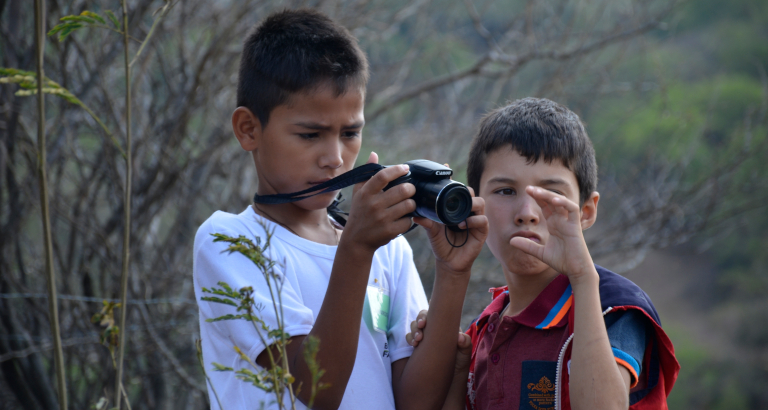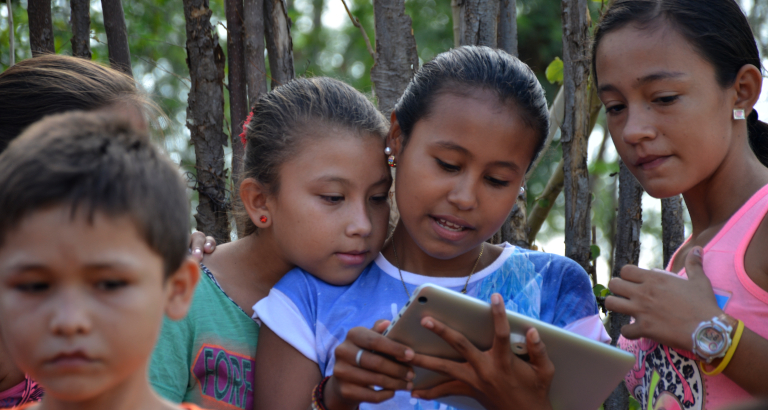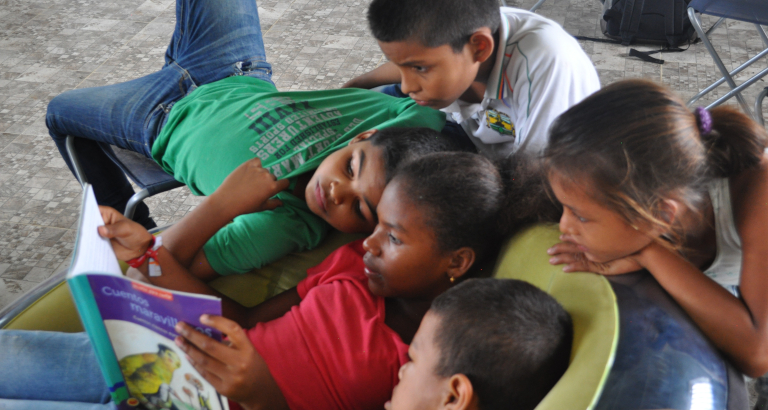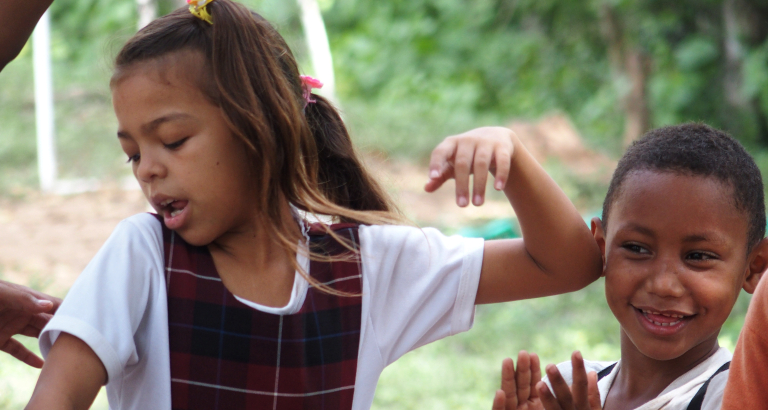Since January 23th, Venezuela has two Presidents: one elected, Nicolás Maduro, the other self-proclaimed and president of the National Assembly, Juan Guaidó. An unprecedented political situation, with an economic, social and humanitarian crisis. Colombia was, at once, the richest country in Latin America. Nowadays, the country fell. Since 2015, hit by inflation and daily violence, more than four million Venezuelans have left the country toward countries like Colombia, which hosts more than one third.
In Arauca, where an Ideas Box has recently been installed, Bibliothèques Sans Frontières and Save the Children accompany dozens of Venezuelan children and adolescents every week. We meet with several actors of the project. The opportunity for a return on our various actions in Colombia.
According to the UN High Commissioner for Refugees, 3000 to 5000 Venezuelans leave the country every day. Why? Falling oil revenues, the country’s main resource, shortages of water and gas, hyperinflation, political stalemate and violence of protests, as well as the lack of food and care. What do they carry in their bag? Hope for a better life, especially in border countries of Latin America, like Colombia.
“With Save the Children, we are in the front line, directly at the border, among the first persons that Venezuelan refugees see when they cross it. As in most of our projects, we are not only working on social cohesion, but also on the cohabitation between the refugee population of the Arauca region, its inhabitants as well as the displaced people due to the civil war in Colombia.” explains Inti Fernandez, former coordinator of the project.
A few months ago, Jenny Salcedo, Project Manager at Biblothèques Sans Frontières, traveled to the border between Colombia and Venezuela to talk with children and refugees from Arauca and gather their needs. They have shown great interest in arts and crafts, movies and board games. During a series of discussions with community members, many parents also expressed concerns about their children’s school learning. Since then, we have selected custom educational resources – physical and digital – for different populations using the Ideas Box, according to their needs and specificities: 300 books of children’s and international literature, board games, e-books, applications or movies.




